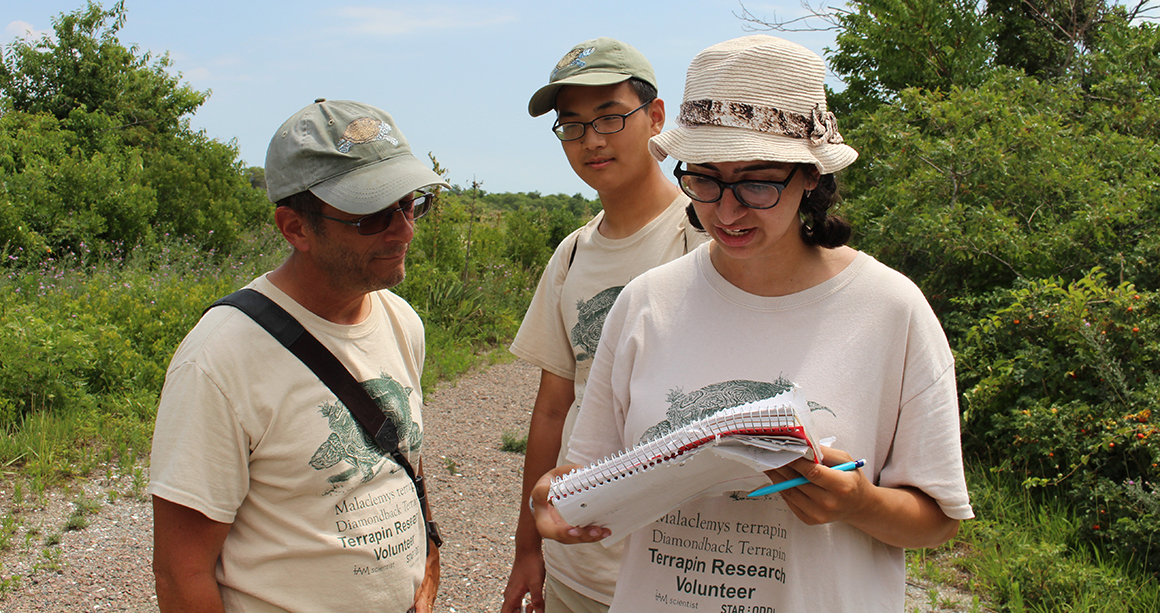
More than half the world's population lives in cities and suburbs. Studying how plants and animals – including humans – coexist in these environments is the core of Hofstra's urban ecology program.
Urban ecology is one of the fastest-growing subfields in ecology. In our program, you'll go behind the headlines about coyotes and black bears finding their way into quiet suburban neighborhoods, or spend a summer researching the turtles that nest in Jamaica Bay. Your professors are in the field as often as they are in the classroom, and they want you to do the same. You'll get the chance to participate in research as early as your first year, playing an integral role in projects that will inspire you, build your résumé, and have meaningful scientific and social impact.
Why study Urban Ecology?
This field is growing as sustainability becomes increasingly important to society. Urban ecologists study vegetation, water flow, wildlife, and open spaces in cities to monitor the health of these resources and how they respond to pollution, development, and other pressures. We monitor nutrient flow from lawns and industry into oceans; help design buildings and large developments to make them more sustainable and appealing; run nature and interpretive programs ranging from very small to citywide; study the effects of invasive species; and explore the positive impacts that green spaces have on biodiversity and human health.
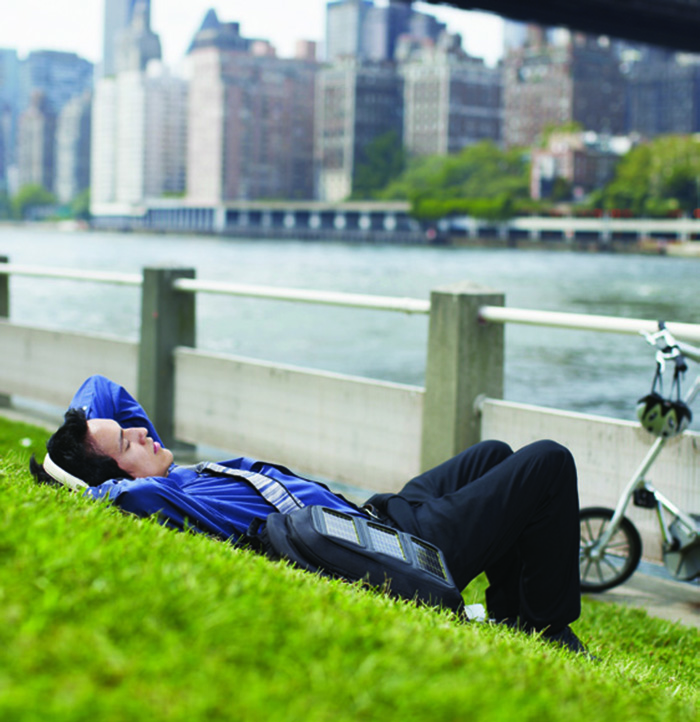
The Majors and Minor
Hofstra's undergraduate programs in urban ecology emphasize robust classes, internships, and relevant experiences. They are designed for students planning professional pursuits in conservation, environmental science, research, academia, urban planning, and/or planning to pursue graduate studies in these areas.
BA in Urban Ecology
The BA program is appropriate for students whose interests in urban ecology are more focused on the social and political aspects of the field and less on the science. It is also a good choice for students planning to pursue graduate studies in other areas, such as education, geography, global studies, law, political science, or engineering.
BS in Urban Ecology
The BS program is appropriate for students whose interests in urban ecology are centered on the science and involved in restoring and maintaining healthy urban habitats and their associated green spaces.
Dual Degrees and Graduate Studies
The BA/MA Dual Degree in Urban Ecology and BS/MS Dual Degree in Urban Ecology may be completed in five years, including at least one summer session. Students could then continue graduate work toward a PhD and/or pursue their careers right away.
Hofstra also offers MA and MS degree programs in Urban Ecology for students anticipating employment in a variety of public and private institutions and agencies, including environmental education, environmental consulting, and natural resource management and conservation with both nongovernmental and local/state/federal organizations.
Learn from the Experts
Our professors are active researchers and journal authors who are experts in a variety of fields including applied and environmental microbiology; behavior and ecology of aquatic animals; molecular biology and evolution; plant and soil ecology; developmental genetics and tissue-specific gene regulation; among many other areas.
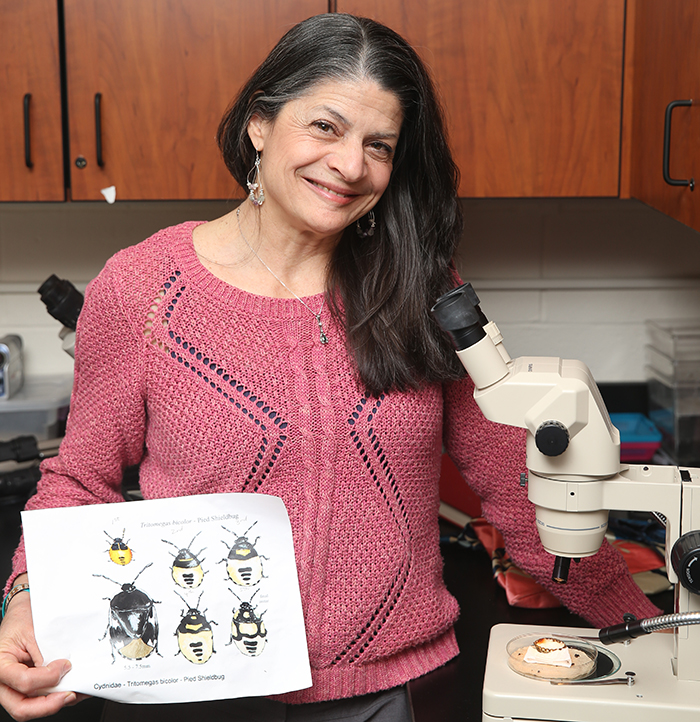
The Student Experience
Research
They involve students in many exciting ongoing research programs – from studying terrapin behavior in Jamaica Bay, microbiology on Long Island vineyards, and lead hazards in residential soils.

Study Abroad
Students can also take a January session course that will take them to either the Galápagos Islands and Ecuador, retracing Darwin’s five-year voyage in order to better understand theories of evolution and ecology, or to Belize for field studies in marine biology. The programs alternate from year to year.
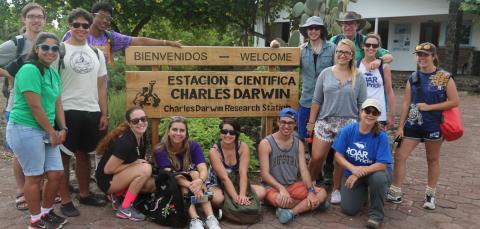
Internships
Internships also are important to the education of our urban ecology students and are required in both the BA and BS programs. Among the places our students have recently completed internships are Andover Animal Hospital, Brookhaven National Laboratory, Cold Spring Harbor Laboratories, Jamaica Bay Wildlife Refuge, and the Oyster Bay Fish Hatchery.
Also on campus
Students can meet like-minded people, share ideas, and organize service-learning opportunities through organizations such as TriBeta, the biology honors society; the Biology Club; and the American Medical Students Association.
The Hofstra Cultural Center's Science Night Live program and the Biology Seminar Series host scientists from Hofstra and other institutions for public lectures about their research. The University also presents a lively annual Earth Day event, as well as a Day of Dialogue that addresses both political and environmental issues.
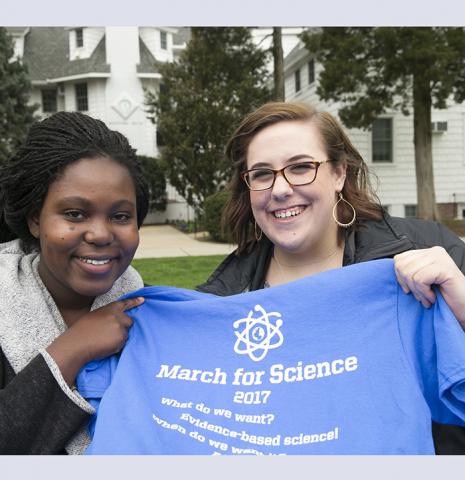
The Outlook
In a survey of recent Hofstra graduates who majored in the natural sciences and mathematics, 96% of respondents reported that within one year of graduation that they were employed and/or attending or planning to attend graduate school.
Among those Hofstra graduates who reported they were employed, 92% responded they landed their position before or within six months of graduation. The mean annual self-reported salary was $55,000.
Recent alumni reported working at:
- Cold Spring Harbor Laboratories
- Cornell University Veterinary Specialists
- Dana-Farber Cancer Institute
- Foot And Ankle Surgeons Of New York
- Hollywood Presbyterian Medical Center
- Memorial Sloan Kettering Cancer Center
- Northwell Health
- NY Presbyterian Hospital
- Plainview Oral Surgery
- The Feinstein Institute for Medical Research
Alumni reported pursuing graduate studies at:
- Albert Einstein College of Medicine
- Columbia University
- Drexel University
- New York Medical College
- NYIT College Of Osteopathic Medicine
- SUNY Stony Brook University
- Tufts University
- University of Connecticut
- University of Massachusetts, Amherst
- University of Pennsylvania
Contact Us
Visit our department website
Biology Department
Room 130 Gittleson Hall
Department Secretary
Rochelle Williams
Email
516-463-5516
Urban Ecology Adviser
Lisa Filippi
Professor
516-463-5831
Room 102A Gittleson Hall
Biology Department Chair
Maureen K. Krause
Professor
516-463-6178
Room 132 Gittleson Hall
Email
Are you a high school student?
The Hofstra University Summer Science Research Program (HUSSRP) provides opportunities in the Department of Biology for high school students to engage in research projects during the summer.


